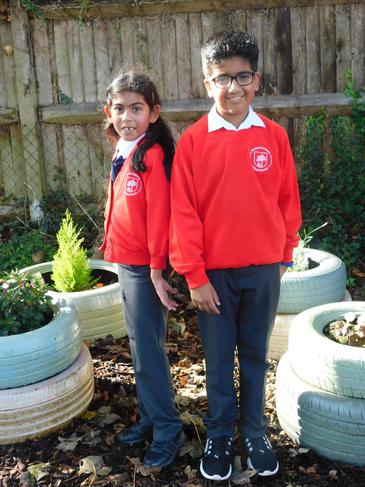Eco Schools
What is Eco Schools?
Eco Schools is a a charity passionate about engaging young people in environmental education and action. They provide a seven-step framework that guides, empowers and motivates pupils to drive change and improve environmental awareness in their school, local community and beyond.
After completing the seven step process, schools can then apply for Eco-Schools Green Flag accreditation, which recognises, rewards and celebrates the environmental achievements of young people.
Eco-Schools was founded in 1994, operates in 70 countries and engages 19.5 million young people globally. This makes Eco-Schools the largest educational programme on the planet.
Ten Topics
This Autumn term our Eco Committee are busy completing an environmental review of both the Infant and the Junior School sites. This review is going to help them write an action plan for projects we would like to take on.
In the action plan we have to choose three from the following ten topics:
- Biodiversity, caring for all plants, animals and insects.
- Energy, reducing energy use and investigating greener energy sources.
- Global Citizenship, working with others on local and global issues.
- Healthy Living, improving mental and physical well-being.
- Litter, taking action to reduce litter in your local area and beyond.
- Marine, protecting rivers, canals, lakes, oceans and the plants and animals that inhabit them.
- School Grounds, enhancing your learning environment.
- Transport, travelling in an environmentally-friendly manner.
- Waste, refusing, reducing, reusing, repairing and recycling.
- Water, protecting our most important natural resource.
No Glitter School
As a federation we support the Eco Schools programme to ban the use of glitter in schools.
Glitter has been used in schools for many years, but is essentially sold as a microplastic – the most environmentally-hazardous format of plastic. Microplastics can now be found even in the most remote places on Earth, samples have been found in Arctic ice and embedded on the seafloor, they have also been found in the stomachs of animals ranging from whales to humans. Again, even ‘eco’ or ‘biodegradable’ litter can take years to decompose damaging wildlife and our planet in the interim.
If you use glitter at home, maybe you could join us in our campaign for a cleaner, greener planet and try some of these Eco-Alternatives too.
Meet our Eco-Committee

|

|

|

|